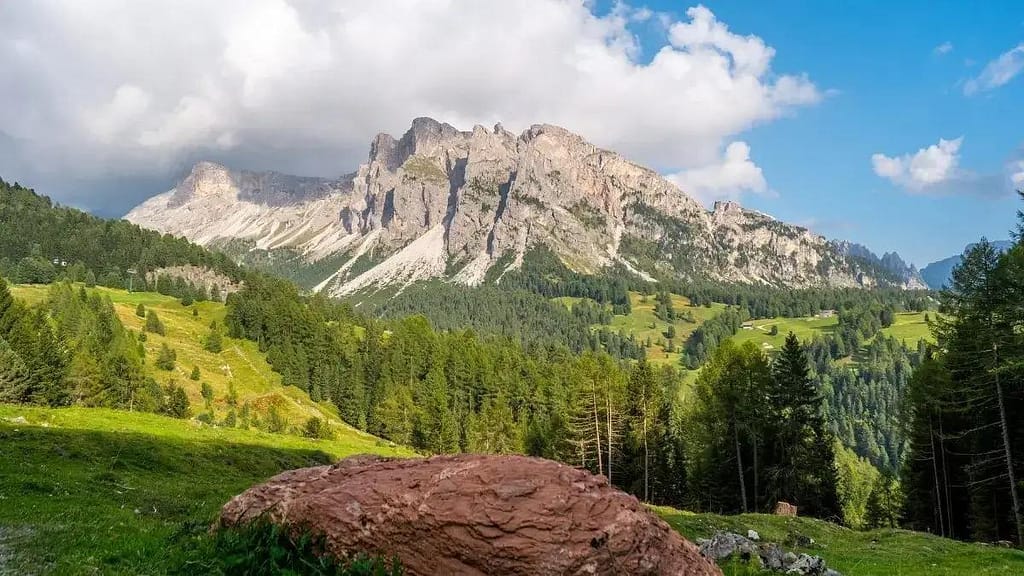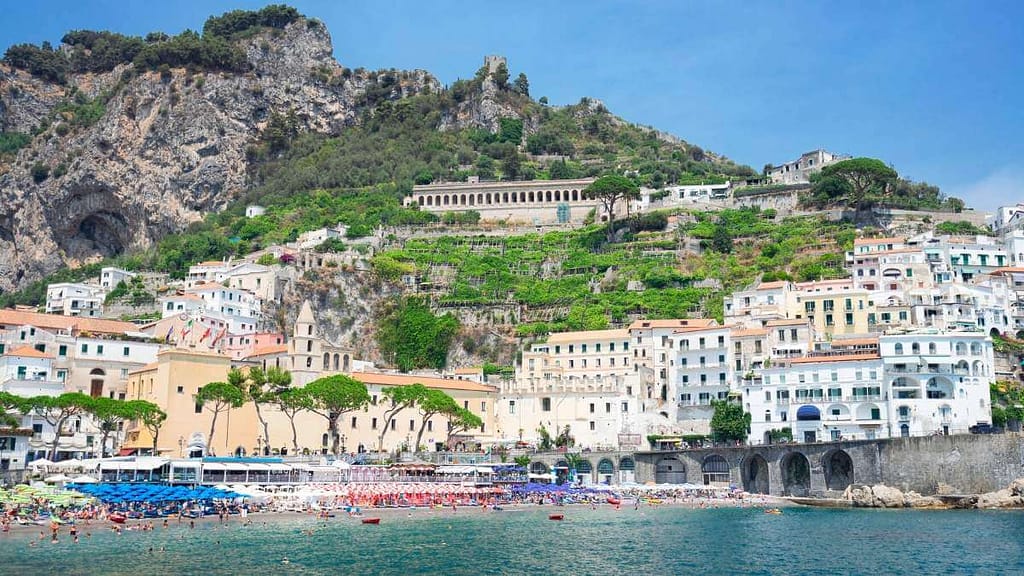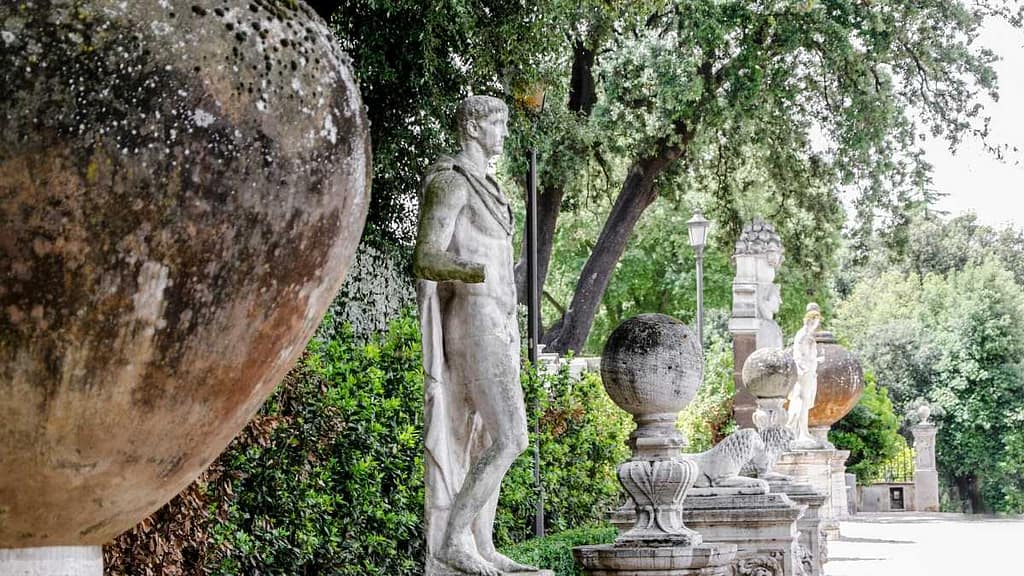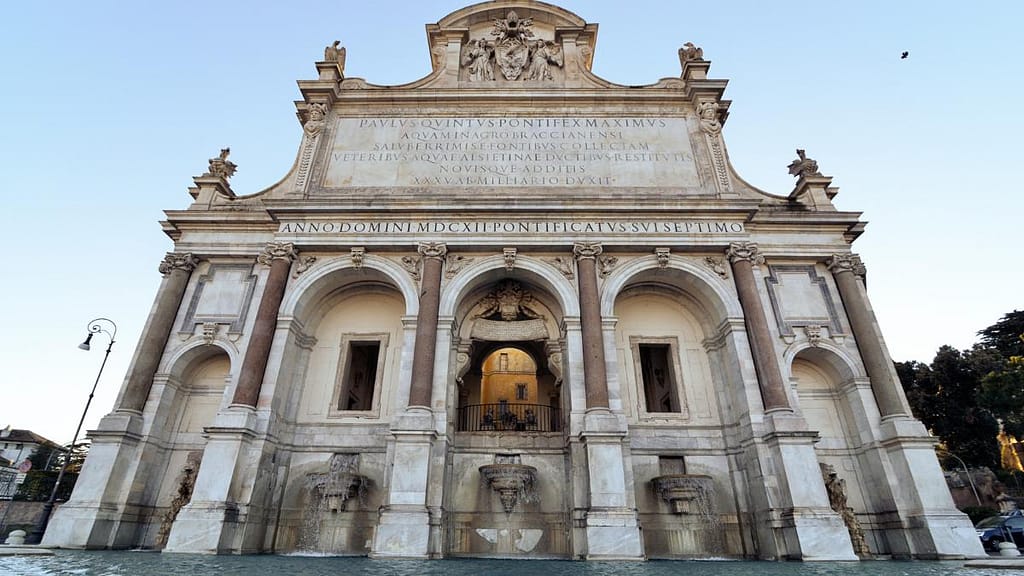Italy is a popular destination for history buffs, art lovers and foodies. However, it’s also an ideal place for outdoor and nature lovers waiting to be explored. Here, you can explore 25 national parks in Italy, each offering unique adventures and breathtaking landscapes. From rugged mountain hikes to adrenaline-pumping outdoor sports, Italy’s national parks cater to every kind of explorer.
Unlike the national parks in North America, Italian national parks don’t require special entry fees. You’ll find people living and doing business in national parks, as many were created after people settled there. Today, the parks are part of the country’s economic activity, blending gastronomy, culture and the outdoors. The parks offer an opportunity to explore Italy’s rich biodiversity and animal species, offering visitors a unique experience for seeing all the country has to offer.
This post may contain compensated links. Find out more info in our DISCLAIMER.
- Best national parks in Italy to explore
- Parco Nazionale dell'Asinara (Asinara National Park)
- Parco Nazionale del Cilento e Vallo di Diano e Alburni (Cilento, Vallo di Diano and Alburni National Park)
- Parco nazionale delle Dolomiti Bellunesi (Dolomiti Bellunesi National Park)
- Parco Nazionale del Gargano (Gargano National Park)
- Parco nazionale del Gran Paradiso (Gran Paradiso National Park)
- Parco Nazionale del Gran Sasso e Monti della Laga (Gran Sasso National Park)
- Parco Nazionale del Pollino (Pollino National Park)
- Parco Nazionale dello Stelvio (Stelvio National Park)
- Parco Nazionale della Val Grande (Val Grande National Park)
- National parks in Italy: which one should you explore?
Best national parks in Italy to explore
Italy’s national parks are some of the most beautiful places in the world. Their dense forests, snowy mountain rangers and azure lakes make them a haven for wildlife. The country’s national parks are located in 19 of the 20 regions. Five of them are UNESCO World Heritage Sites, and two are recognized by UNESCO as Global Geoparks. Here are our picks for the 10 best parks to visit on your next Italian vacation.
| Name | Region | Area size | Elevation |
|---|---|---|---|
| Asinara National Park | Sardinia | 269.60 km2 (104.09 sq mi) | 408 m (1,339 ft) |
| Cilento and Vallo di Diano National Park | Campania | 1,810.48 km2 (699.03 sq mi) | 1,898 m (6,227 ft) |
| Dolomiti Bellunesi National Park | Veneto | 31.51 km2 (12.17 sq mi) | 2,335 m (7,661 ft) |
| Gargano National Park | Puglia | 1,211.18 km2 (467.64 sq mi) | 1,065 m (3,494 ft) |
| Gran Paradiso National Park | Valle d’Aosta, Piedmont | 700.00 km2 (270.27 sq mi) | 4,061 m (13,323 ft) |
| Gran Sasso e Monti della Laga | Marche, Abruzzo, Lazio | 1,413.31 km2 (545.68 sq mi) | 2,912 m (9,554 ft) |
| Pollino National Park | Basilicata, Calabria | 1,925.65 km2 (743.50 sq mi) | 2,267 m (7,438 ft) |
| Stelvio National Park | Lombardy, Trentino-Alto Adige/Südtirol | 1,307.00 km2 (504.64 sq mi) | 3,905 m (12,812 ft) |
| Val Grande National Park | Piedmont | 145.98 km2 (56.36 sq mi) | 2,295 m (7,530 ft) |
Parco Nazionale dell’Asinara (Asinara National Park)
The Asinara National Park is located on the island of Sardinia. Asinara is Sardinia’s second-largest island, named after the albino white donkeys (asini bianchi) that live there. The island, made up of Mediterranean scrub called macchia, has a rocky coastline and sandy beaches. It is a wildlife haven for donkeys and other animals, including the peregrine falcon and silky-haired wild sheep known as mouflon.

Before it became a national park, the island had a more sinister past, which gave it the nickname Isola del Diavolo (Devil’s Island). During WWI, it functioned as a quarantine station for cholera victims and prison camps. It became a high-security prison for Italy’s most dangerous criminals, including several gangsters. The prison closed in 1997, and the island became a national park a year later.
Today, the remnants of abandoned buildings dot the landscape. If you enjoy outdoorsy hikes with a mix of history, then this national park is for you.
Parco Nazionale del Cilento e Vallo di Diano e Alburni (Cilento, Vallo di Diano and Alburni National Park)
Founded in 1991, Cilento, Vallo di Diano and Alburni National Park is Italy’s second-largest national park. It’s located in the Campania region in the province of Salerno and has been designated as a UNESCO World Heritage Site. Stretching across the Cilento peninsula, the park is home to over 1,800 plants, the Alento and Tanagro rivers and several mountain peaks between 1700 and 1800 meters high.

Like many other national parks in Italy, Cilento is home to historical landmarks and natural wonders. Here, you can explore the ancient Greek temples in Paestum, medieval castles in Sicignano degli Alburni and Postiglione, or the prehistoric caves near Castelcivita. Cilento is an excellent place for hiking and biking. As it lies along the coast, there are numerous beaches and trails to explore. Many coastal towns like Palinuro offer boat excursions to explore nearby beaches and caves.
Parco nazionale delle Dolomiti Bellunesi (Dolomiti Bellunesi National Park)
The Dolomiti Bellunesi National Park is also a UNESCO site in the Veneto region. It’s Italy’s smallest national park and is the perfect place for adventurous travellers looking for outdoor adventures. The Dolomites are home to various fauna and flora unique to the area. Here, you’ll find distinctively jagged mountains, extensive coniferous and deciduous forests, meadows, rivers and canyons. The Dolomiti Bellunesi National Park was officially established to protect these extraordinary landscapes and designated a UNESCO World Heritage Site.

The Dolomites are perfect for hiking, biking and winter sports. It is also home to different animals, including golden eagles, deer, marmots, woodpeckers and alpine newts. Each season highlights the stunning beauty of the mountains, which means you won’t be disappointed no matter when you visit. In addition to a wide range of outdoor activities, the park is home to small villages with rich cultures and traditions.
Parco Nazionale del Gargano (Gargano National Park)
Gargano National Park extends into the blue waters of the Adriatic Sea. Located in the Puglia region, it is home to the ancient woodlands of the Foresta Umbra and includes the Tremiti Islands archipelago and the wetlands of Lago Salso. Ancient forests, woodlands, rocky coastline and flowery valleys are home to a wide range of wildlife, including woodpeckers and roe deer.
Gargano has excellent hiking, biking and running trails suitable for all fitness levels. It’s a great place to immerse yourself in the region’s cultural heritage by visiting historic villages where fishers still use the old wooden fishing platforms jutting into the sea. Who knows, you might even see your dinner being fished out of the water.
Parco nazionale del Gran Paradiso (Gran Paradiso National Park)
The Gran Paradiso National Park is in the Graian Alps of Italy, between the Aosta Valley Region and Piedmont. Some of the park’s area once belonged to King Victor Emmanuel II and was his personal hunting ground. Due to overhunting, the Alpine ibex population declined drastically, prompting him to declare this as the Royal Hunting Reserve of the Gran Paradiso in 1856.
Outdoor activities you might like:
- Spend a day in the Italian Alps – book your tour now
- Alpine Wonders Lunch at Diavolezza and Bernina Train – book your spot today
- Swiss Alps Bernina Red train and St.Moritz tour from Milan – get your tickets
King Victor Emmanuel III donated his grandfather’s land in 1920, making Gran Paradiso Italy’s first and oldest national park. The alpine meadows, snowy slopes, glaciers and sweeping panoramas are home to rich and various wildlife, including ibex, ermine, weasel, Eurasian badger, alpine chamois and numerous bird species. The park’s stunning landscapes are ideal for outdoor activities, sports, cultural experiences, and wellness escapes.
Parco Nazionale del Gran Sasso e Monti della Laga (Gran Sasso National Park)
The predominantly mountainous Gran Sasso National Park lies in the Abruzzo region. It encompasses the Monti della Laga mountain range, the Calderone glacier, and its most prominent peak, the Gran Sasso. The park is one of Europe’s largest protected areas and one of the continent’s most biologically diverse areas. With alpine pastures and lakes, it’s one of the most beautiful national parks in the Italian territory.

With over 300 km (190 miles) of trails, Gran Sasso is great for outdoor activities such as hiking, horseback riding, mountain biking, canoeing, and skiing. The park’s biodiversity, stunning views, and an assortment of castles, abbeys, and medieval hamlets make it an excellent place for exploration.
Parco Nazionale del Pollino (Pollino National Park)
The largest of all national parks in Italy, Pollino National Park, overlaps the regions of Basilicata to the north and Calabria to the south. The park has some of southern Italy’s highest peaks covered in snow, including Serra Dolcedorme, which soars 2,267 metres above sea level.

The park is home to ancient forests, river canyons, streams, mountains, alpine meadows, and valleys. While it offers stunning panoramas, numerous hiking trails, and other outdoor activities, it’s not widely visited. If you want to experience Italy’s natural beauty without worrying about crowds, this park is for you.
Parco Nazionale dello Stelvio (Stelvio National Park)
Stelvio National Park stretches across the Central Alps in the Trentino-Alto Adige and Lombardy regions. It borders Switzerland’s Parco Nazionale Svizzero. Its majestic mountains, valleys, green grasslands, glacier springs, and dense forests are home to rare animal and plant species that flourish in this unique ecosystem.
Alpine villages and mountain farms dot the valleys and mountain slopes as they sit against the breathtaking vistas. Stelvio is an outdoor lover’s paradise that offers a variety of outdoor activities in all seasons. You can also drive the Stelvio Pass road as it navigates between the park’s highest peaks with endless hairpin turns and steep inclines.
Parco Nazionale della Val Grande (Val Grande National Park)
The Val Grande National Park, located at the Swiss border in the Piedmont region, is the largest wilderness area in Italy. The area was heavily used for timber production as far back as the 15th century. It all ended after World War II, making way for conservation efforts to protect the area.

Today, the park is notable for dense woods, snow-capped mountains, canyons, valleys and ravines. Here you can spot roe deer, wild boars, wolves, foxes and golden eagles. The park lies the drainage basin of the Po River, and its two valleys, the Val Grande and Val Pogallo, feed the rivers that flow into Lake Maggiore.
National parks in Italy: which one should you explore?
One thing is certain when choosing between the national parks in Italy. They all offer visitors amazing landscapes and plenty of outdoor activities. By combining nature with human activity, you can enhance your experience by combining your love of the outdoors with a cultural immersion.
There are 25 parks, so visitors don’t have to travel far to find them. The parks listed on this list are only a fraction of the natural beauty Italy offers visitors. It’s easy to add a stop at a national park to your itinerary, and it’s a chance to experience the Italian countryside and get to know the people who live here.
FAQ
How many national parks are there in Italy?
There are 25 national parks in Italy. These parks cover about five percent of the country’s land area and offer diverse landscapes and protected areas, from mountainous terrains to coastal vistas. If you want to explore the green heart of Italy and its unique landscapes, visiting one of the parks should be on your list.
What is the most visited national park in Italy?
The most visited national park in Italy is the Cinque Terre National Park. Located in Liguria, this park is famous for its five colourful fishing villages perched on rugged cliffs overlooking the Mediterranean Sea. The scenic hiking trails and panoramic views attract millions of visitors each year.
What is the famous park in Italy?
One of the most famous parks in Italy is Gran Paradiso National Park, the first national park established in Italy. Located in the Alps, it’s known for its stunning mountain ranges, diverse wildlife, including the iconic Alpine ibex, and many outdoor activities such as hiking, climbing, and skiing.
What is the largest national park in Italy?
The largest national park in Italy is the Stelvio National Park. Covering an area of over 400,000 acres, it straddles the regions of Lombardy, Trentino-Alto Adige, and South Tyrol. The park features glacial landscapes, alpine meadows, and extensive forests. It also has rare wildlife species, including red deer, chamois, and golden eagles.




